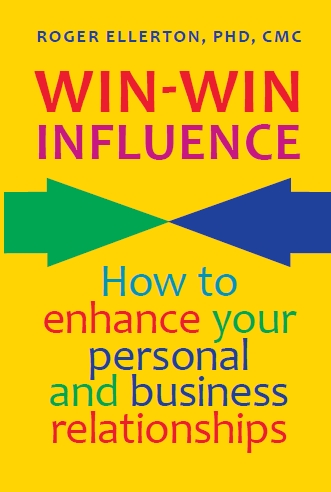Know When to Use Your "But"
By Roger Ellerton Phd, ISP, CMC, Renewal Technologies Inc.
This article may not be republished without written permission from Roger Ellerton/Renewal Technologies Inc. If you republish this article without permission, you will be in violation of copyright law and sent an invoice. You may share this and other pages with your friends by linking directly to this page from your website or blog.
You have just finished sharing an idea with a colleague and the first word out of her mouth is "but ... " or "Yes, but ..." What's your reaction? Do you think she was actually listening? Do you feel she has rejected your idea? Now assume she said "and" instead of "but." Does this feel different? Do you have a sense she was listening and is now building on your idea? The word "but" has the potential to diminish or kill whatever idea, thought or experience immediately precedes it. "This is a very nice gift, but I am not sure when I would use it." Far too often we use "but" when "and" is a better choice. Begin to notice where in your conversation you can enhance your communication by using "and" in place of "but."
There are definitely times when "but" is useful. Let's explore these and how you can use the word "but" to your advantage.
- You want or feel you have to declare something, and then would like it to diminish or even disappear from the awareness of those who are listening. "Our plan may not be fully developed, but it is useful to begin putting our resources together now."
- You want to bring an idea or thought back into the discussion after someone has removed it with a "but." Someone says, "Your idea is great, but we can not proceed until we have all of our resources in place." You may reply with, "Your suggestion to have our resources in place is a good idea, but if we do not start now some of the resources we need may not be available."
- If someone is cautious or wary about an idea or proceeding, they may respond in a defensive manner with a "but." That is, they may find problems, objections to whatever someone proposes even if it is a good idea. In this situation, there is the potential of both parties focusing on the objection (the part after the "but") and not on the original issue/point. A possible course of action to move things forward is to repeat what the other person has said and replace "but" with "and". The cautious person may say, "I can see your idea is a good one, but I do not have the resources to pursue it." Your response may be, "OK, we agree the idea is good and we need to find the resources so that you can pursue it." Thus, we encourage the cautious person to consider both parts of the argument - the suggestion and the problem. Possible objections are considered in the context of possible advantages of the suggestion/idea.
- You can use "but" as a preemptive move with someone who tends to respond with a "Yes, but,". For example, you want to make a proposal to your boss, who you know from experience tends to find objections, or respond negatively to other people's ideas or proposals. "You may think what I propose won't work, but I'd like you to review my proposal and see what you think." If your boss is someone who tends to take the opposite view, he will feel compelled to disagree with the idea before the "but", particularly if you have a slight pause before proceeding with the "but" and the rest of your thought. This will tend to move him toward agreement with the second part of your sentence. That is, he will have a tendency to respond negatively to the first part of your sentence, and the "but" will "take this off the table". As a result, he is more likely to consider your proposal on its merits. If you're sure that someone will oppose what you say, giving him something else to object to allows him to approach the second part of your sentence with a more open mind.
The next time you are in a conversation, pay attention to your and the other person's "but".
Author: Roger Ellerton is a certified NLP trainer, certified management consultant and the founder and managing partner of Renewal Technologies. The above article is based on his book Live Your Dreams Let Reality Catch Up: NLP and Common Sense for Coaches, Managers and You.
Copyright © 2007, Renewal Technologies Inc. All rights reserved.







